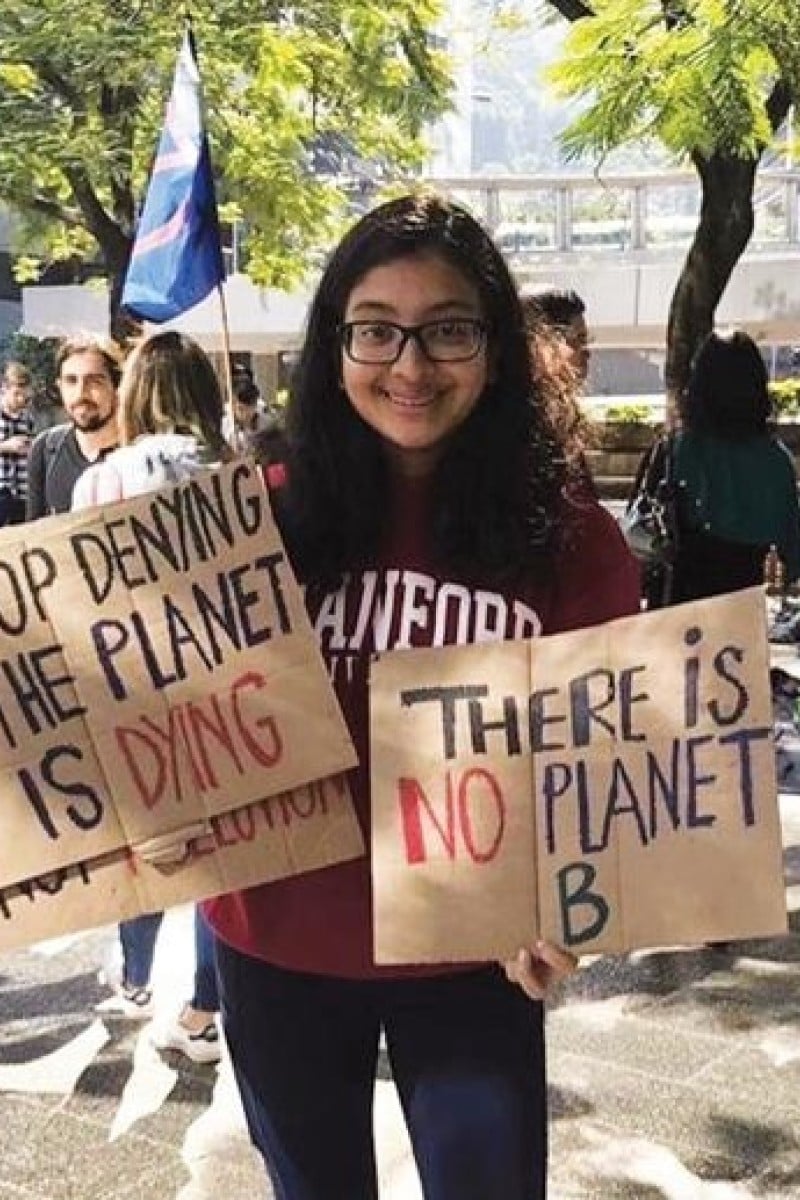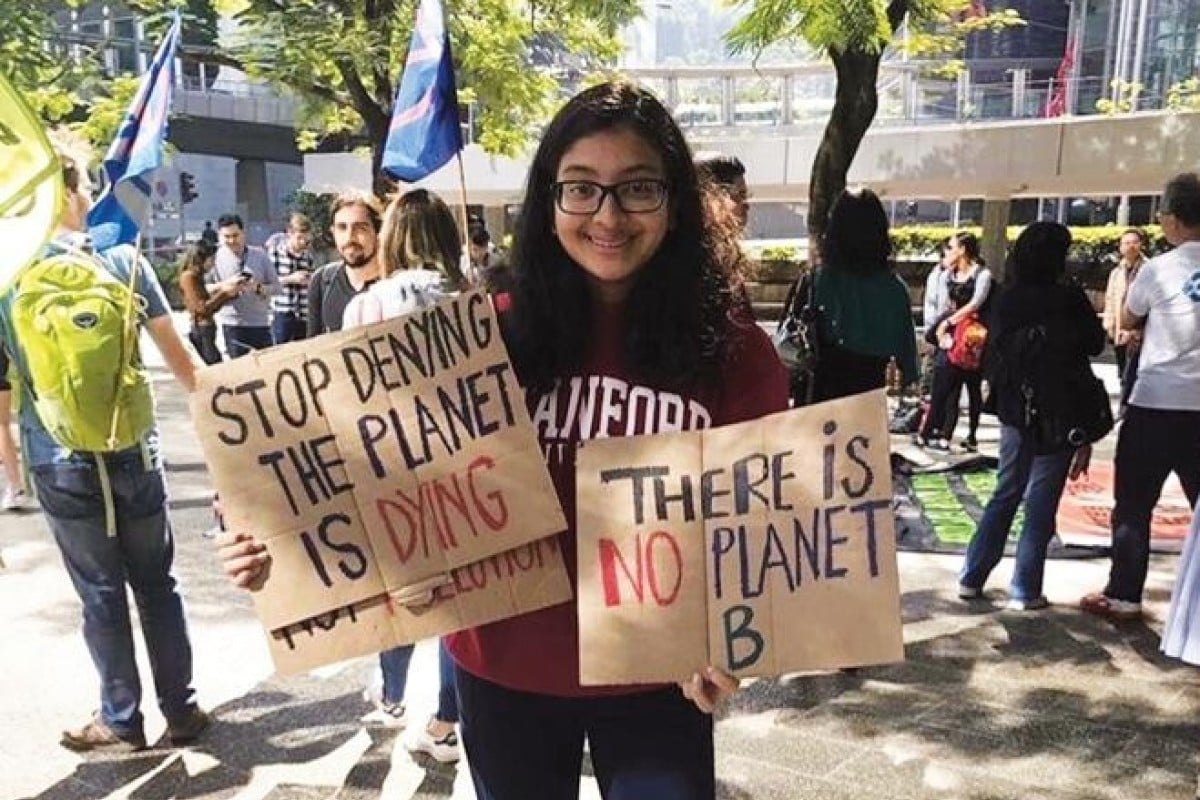
The Hong Kong student educating her peers on plastic pollution and its effect on the environment
- Gaurika Pant volunteers for the NGO Plastic Free Seas, cleaning up beaches and creating infographics on sustainable living
- She encourages people to switch to reusable masks during the Covid-19 pandemic, as they are more environmentally friendly
 Gaurika Pant has made it her mission to educate people on the harmful effect plastics has on the environment.
Gaurika Pant has made it her mission to educate people on the harmful effect plastics has on the environment. When Gaurika Pant attended her first beach clean-up in 2017, she was appalled by the amount of plastic she saw washed up on the shore.
“I saw a different side of the ocean that day,” says the 17-year-old student from Hong Kong International School.
“It was a complete shock to me. We collected so much trash in only two hours, and I knew we needed to do more.”
So Gaurika made it her mission to educate her peers about the harmful impact plastic has on the environment, and in 2018, began volunteering at local environmental NGO, Plastic Free Seas (PFS).
Hong Kong's pink dolphin population sees a comeback during Covid-19
“I started by helping at their regular beach clean-ups and now I also help with graphic design work,” she says. “I make their posters, infographics, and social media artwork.”
An avid artist, Gaurika uses her talent to spread information about the importance of sustainability. She creates pieces using materials that she has collected through her beach clean-ups, such as drinks cartons, toilet roll, bubble wrap, and plastic bags.
“Art provides a visual representation that catches people’s eye,” she says. “This can have more of an impact on the public.”
She also volunteers at the Shek-O No Waste Mall, a monthly event held to collect, recycle, and separate different types of waste, and has attended all the climate change rallies in the city which, she says, though often small, have “definitely brought the issue to a much wider audience”.
Last year, Gaurika attended the Hong Kong Youth Conservation Summit, where students from around the city collaborated to address ocean conservation issues.
“It was really nice to see students of all ages involved and eager,” she says.
This year brought about a new, uniquely 2020 pollution issue: hundreds of disposable masks washed up on beaches, scattered along hiking trails, and even dumped in the sea. This, she says, made her think about what could be done to stop this alarming trend.
Gaurika conducted a sustainability survey in June and July, to understand how people used masks, and how they were disposed, as well as the overall attitude towards single-use plastic. She surveyed 170 people, and her findings, she says, were alarming.
Environmental NGO calls for investigation as black rubber granules found on beaches
She found that 71 per cent of those she surveyed wear single-use masks, while 29 per cent use reusable face coverings. She also found that 10 per cent of respondents had switched from reusable to disposable cups due to the pandemic, and that 71 per cent use disposable takeaway containers from restaurants rather than bringing their own.
The results inspired her to create a plan to encourage the move away from disposable to reusable masks. So she designed posters, infographics, and social media art to remind people of the importance of reusable items.
“As a community, we need to see how to increase the use of reusable masks and reusable cups,” Gaurika says.
“As we have seen that sustainability and economics work well together, institutions and businesses can introduce incentives to motivate people to switch to reusable masks and cups.
Endangered species list now includes lemurs and hamsters
“But if people – for whatever reason – are unable to make the swap, I would encourage them to cut the strings off the mask,” she adds.
“They are entangling and harming animals. It is important to dispose of them correctly.”
Gaurika says she will continue to raise awareness of the “plastic problem”, and help to provide solutions to try to reduce our carbon footprint, and reverse the effects of climate change and plastic waste.
“We all need to stop using single-use plastics,” she says.
How to recycle everything in Hong Kong
“I would encourage people to find alternatives such as carrying your own reusable cup and cutlery, using a bamboo toothbrush, and buying food in bulk.
“Every year, more than 8 million metric tonnes of plastic enter our oceans so it is crucial for us to reduce our plastic consumption.
“These little steps and actions will eventually lead to a bigger change in the community.”
